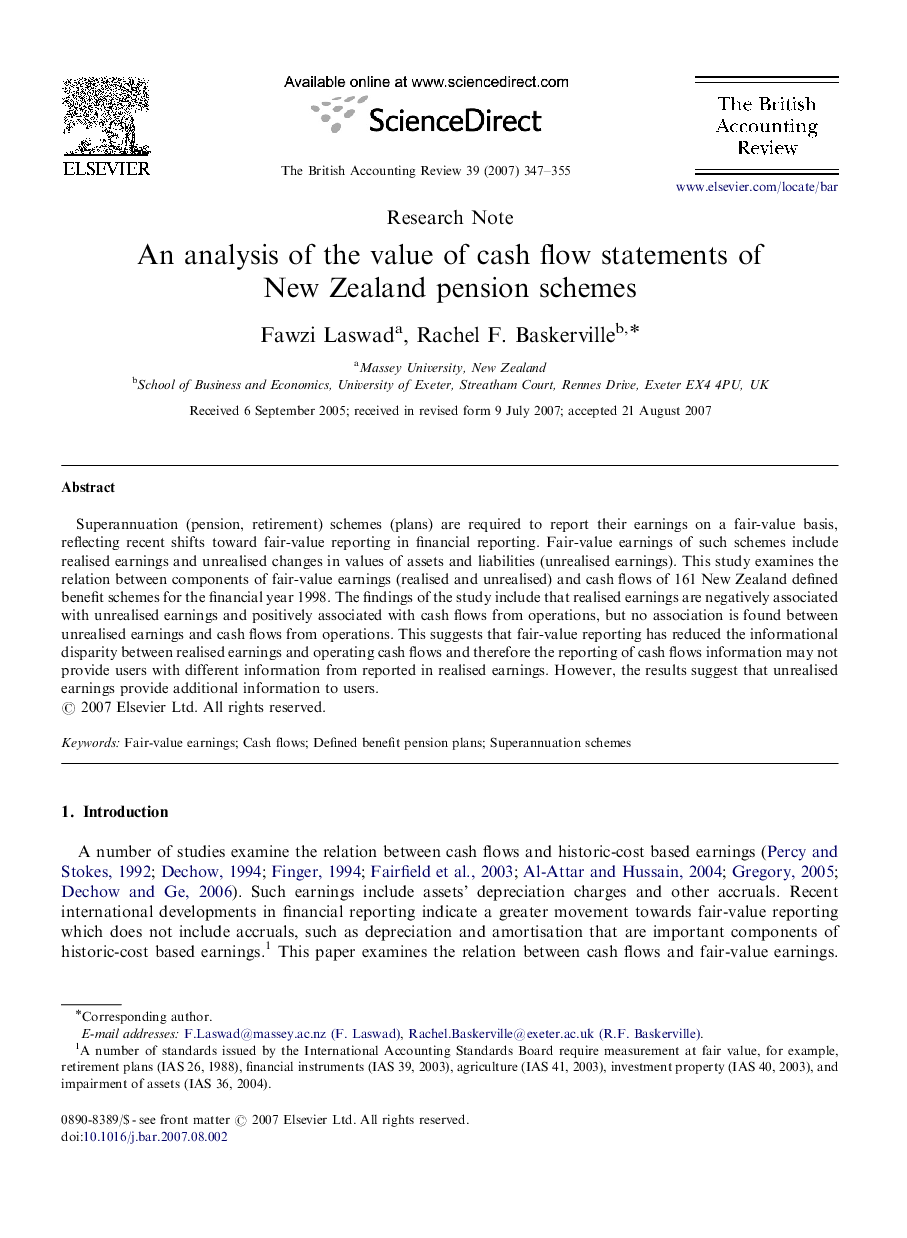| Article ID | Journal | Published Year | Pages | File Type |
|---|---|---|---|---|
| 1004244 | The British Accounting Review | 2007 | 9 Pages |
Superannuation (pension, retirement) schemes (plans) are required to report their earnings on a fair-value basis, reflecting recent shifts toward fair-value reporting in financial reporting. Fair-value earnings of such schemes include realised earnings and unrealised changes in values of assets and liabilities (unrealised earnings). This study examines the relation between components of fair-value earnings (realised and unrealised) and cash flows of 161 New Zealand defined benefit schemes for the financial year 1998. The findings of the study include that realised earnings are negatively associated with unrealised earnings and positively associated with cash flows from operations, but no association is found between unrealised earnings and cash flows from operations. This suggests that fair-value reporting has reduced the informational disparity between realised earnings and operating cash flows and therefore the reporting of cash flows information may not provide users with different information from reported in realised earnings. However, the results suggest that unrealised earnings provide additional information to users.
